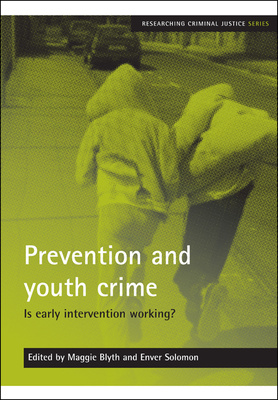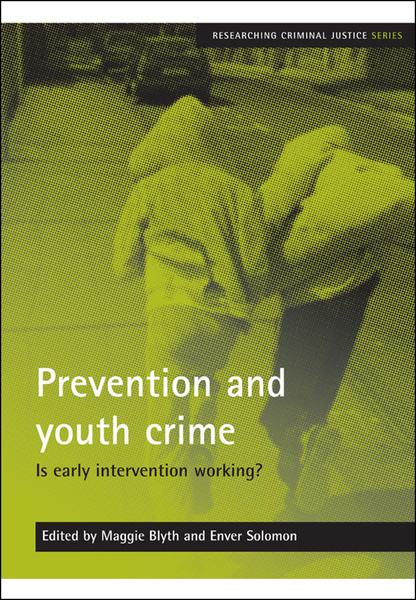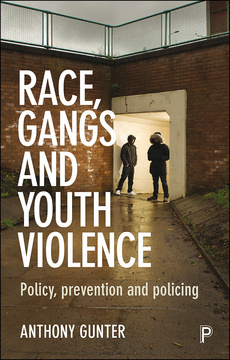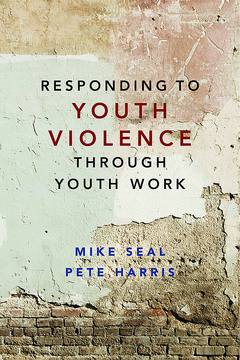ISBN
978-1847422637Dimensions
245 x 170 mmImprint
Policy PressThe 2008 UK government Youth Crime Action Plan emphasises prevention and early intervention in different aspects of work with young people who offend or are considered to be 'at risk' of offending. Much of this approach includes targeted work with families and work to reduce the numbers of young people entering the youth justice system.
This report takes a critical look at early intervention policies. Through contributions from leading experts on youth work and criminal justice it considers the development of integrated and targeted youth support services and the implications for practice of early intervention policies; analyses the causes of serious violent crime through consideration of issues that address gangs and guns; provides an evaluation of the government's early intervention strategy through the examination of its Sure Start programme and other family initiatives; identifies the psychobiological effects of violence on children and links them to problem behaviour; considers the impacts of family intervention projects and parenting work and compares approaches to early intervention across different jurisdictions and examines the lessons for practice in England and Wales.
"This edited collection is a timely contribution to debates around ‘early intervention’, particularly in the youth justice sphere......of great interest to the broad intended audience - politicians and policy makers, academics, researchers and practitioners". Laura Kelly in British Journal of Criminology
Maggie Blyth is independent chair of Nottingham Youth Offending Team and a youth justice specialist. She is also a member of the Parole Board for England and Wales.
Enver Solomon is Deputy Director of the Centre for Crime and Justice Studies, an independent charity affiliated to the Law School at King's College London.
Introduction ~ Enver Solomon and Maggie Blyth; Integrated or targeted youth support services: an essay on 'prevention' ~ Howard Williamson; Intervening in gang-affected neighbourhoods ~ John Pitts; Family intervention projects and the efficacy of parenting interventions ~ Judy Nixon and Sadie Parr; Early intervention and prevention: lessons from the Sure Start programme ~ Karen Clarke; Attachment research and the origins of violence: a story of damaged brains and damaged minds ~ Dr Felicity de Zulueta; Early intervention in the youth justice sphere: a knowledge-based critique ~ Barry Goldson; European perspectives on prevention ~ Rob Allen; Conclusion ~ Maggie Blyth and Enver Solomon.












